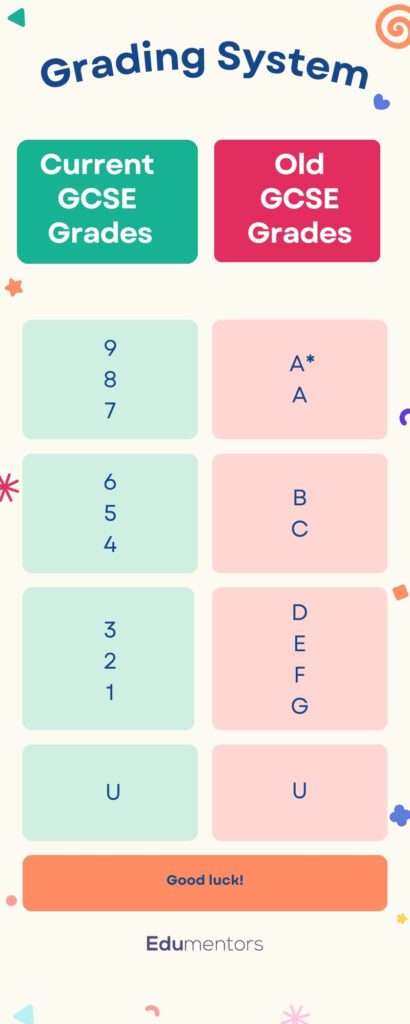GCSE English Literature – Everything You Need to Know
Exploring GCSE English Literature can be overwhelming for students and parents due to its detailed grading, wide topic range, and complex literary analysis. This guide simplifies these elements, discussing key topics, common challenges, and effective study aids. It also highlights the advantages of online tutoring to enhance understanding and mastery of the subject. Let’s begin this journey to make GCSE English Literature more accessible.
What are GCSEs?
As you may already know, the GCSE forms an integral part of the UK education system. These qualifications, taken by students aged 14-16, span a wide array of subjects, laying the foundation for further academic pursuits. English Literature, one of these subjects, stands out for its emphasis on literary appreciation, critical thinking, and analytical skills. In this article, we’ll delve deeper into the nuances of GCSE English Literature, exploring its grading scheme, key topics, and the common challenges students often encounter.
GCSE Grading Scheme
The GCSE grading scheme underwent a significant transformation recently, moving from the traditional A*-G scale to a numerical 9-1 system. In this new scheme, 9 represents the highest achievable grade, equivalent to a high A*, while 1 corresponds to a G. Grades 9, 8 and 7 are broadly equivalent to the former A* and A, while grades 6, 5 and 4 represent B and C grades. This system aims to provide a more differentiated view of students’ abilities, particularly at the top end. Understanding this grading scheme is crucial for setting realistic study goals and interpreting results in GCSE English Literature.

Key Topics in GCSE English Literature
GCSE English Literature covers a diverse range of topics designed to foster a deep appreciation of literary works and their contexts. Here are the key areas of focus:
Prose
Students explore novels and short stories from different periods and cultures. They learn to appreciate the author’s craft and understand the socio-cultural contexts of the works, focusing on:
- Themes
- Characters
- Narrative Techniques
Poetry
This involves studying a collection of poems, often linked by theme. Students learn to analyse poetic techniques, language, and form. They also compare and contrast different poems, developing a nuanced understanding of poetic expression.
Drama
Students study plays, both modern and classic, including at least one Shakespearean work. They learn to analyse dramatic techniques, character development, and themes. They also explore how plays work in performance, considering staging, lighting, and direction.
Unseen Texts
This component tests students’ ability to analyse and interpret literary texts they haven’t studied before. It assesses their spontaneous critical reading skills and ability to articulate their interpretations effectively.
These topics offer students a broad understanding of English Literature, equipping them with the skills to analyse and appreciate a wide range of literary works.
Common Challenges in GCSE English Literature

Despite its enriching content, GCSE English Literature can pose several challenges for students. Understanding these hurdles can help in devising effective strategies to overcome them.
Understanding Complex Texts
Many students struggle with the complexity of texts, particularly those from different historical periods. The language, cultural references, and historical context can be difficult to grasp.
Analysing Literary Techniques
Identifying and analysing literary techniques is another common challenge. Students often find it hard to recognise and interpret symbolism, metaphors, and other stylistic devices used by authors.
Writing Comprehensive Essays
GCSE English Literature requires students to write detailed, well-structured essays. Many students struggle with constructing a coherent argument, integrating textual evidence, and maintaining a formal, academic tone.
Time Management
The unseen texts component of the exam can be particularly challenging due to time constraints. Students often find it difficult to read, analyse, and write a comprehensive response within the given time.
Interpretation and Perspective
Literature is open to interpretation, and students sometimes find it challenging to develop and articulate their unique perspective on a text, particularly when it differs from common interpretations.
Understanding these challenges is the first step towards overcoming them. In the following sections, we’ll explore strategies to tackle these issues and provide resources for effective revision.
Sample GCSE Literature Exam Questions
To provide a practical understanding of what students might encounter in the exam, let’s take a look at a sample question and its in-depth explanation.
Question 1: Prose Analysis
Examine how the author presents the character of Mr. Darcy in this extract from ‘Pride and Prejudice’. How does this presentation relate to the overall portrayal of Mr. Darcy in the novel?
Extract:
“In vain have I struggled. It will not do. My feelings will not be repressed. You must allow me to tell you how ardently I admire and love you.” Mr. Darcy’s declaration of love was as surprising as it was passionate. His countenance was pale, his eyes full of an emotion he had long fought to suppress.
In-depth Explanation
This question requires a detailed understanding of both the extract and the novel as a whole. It’s asking for an analysis of how Mr. Darcy is presented in this specific extract, and how this presentation fits into his characterisation throughout the entire novel.
A common mistake students make with this type of question is focusing too much on the extract and neglecting to relate their analysis back to the novel as a whole. It’s important to remember that the extract is a part of a larger narrative, and the character’s portrayal in the extract should be considered in that broader context.
To answer this question effectively, students should:
- Identify key descriptions and actions in the extract that reveal aspects of Mr. Darcy’s character.
- Analyse these elements, considering the author’s choice of language, literary techniques, and narrative perspective.
- Discuss how these aspects of Mr. Darcy’s character in the extract relate to his portrayal in the novel as a whole. This could involve comparing the extract to other key moments in the novel, or discussing how the extract contributes to the reader’s overall understanding of Mr. Darcy’s character.
Remember, it’s not just about identifying features, but also about analysing their effect and significance in the context of the novel.
Question 2: Poetry Comparison
Compare how the themes of love and loss are presented in the following two poems: ‘Sonnet 18’ by William Shakespeare and ‘Remember’ by Christina Rossetti.
Extracts:
‘Sonnet 18’ by William Shakespeare:
“Shall I compare thee to a summer’s day? Thou art more lovely and more temperate: Rough winds do shake the darling buds of May, And summer’s lease hath all too short a date: Sometime too hot the eye of heaven shines, And often is his gold complexion dimmed; And every fair from fair sometime declines, By chance or nature’s changing course untrimmed; But thy eternal summer shall not fade Nor lose possession of that fair thou owest; Nor shall Death brag thou wanderest in his shade, When in eternal lines to time thou growest: So long as men can breathe or eyes can see, So long lives this, and this gives life to thee.”
‘Remember’ by Christina Rossetti:
“Remember me when I am gone away, Gone far away into the silent land; When you can no more hold me by the hand, Nor I half turn to go yet turning stay. Remember me when no more day by day You tell me of our future that you planned: Only remember me; you understand It will be late to counsel then or pray. Yet if you should forget me for a while And afterwards remember, do not grieve: For if the darkness and corruption leave A vestige of the thoughts that once I had, Better by far you should forget and smile Than that you should remember and be sad.”
In-depth Explanation
This question requires a comparative analysis of two poems, focusing on how they present the themes of love and loss. A common mistake students make is analysing the poems separately without drawing sufficient comparisons between them.
To answer this question effectively, students should:
- Identify key elements in each poem that relate to the themes of love and loss.
- Analyse these elements, considering the poets’ choice of language, poetic techniques, and structure.
- Draw comparisons between the two poems, discussing similarities and differences in how they present these themes.
For instance, in ‘Sonnet 18’, Shakespeare presents love as eternal and transcending even death, while in ‘Remember’, Rossetti portrays love as something that persists after death, but she also introduces the theme of loss and the sadness that comes with it.
Remember, the key to answering this type of question effectively is to maintain a balanced focus on both poems and to draw clear comparisons between them.
Question 3: Drama Analysis
How does Shakespeare present the theme of ambition in this extract from ‘Macbeth’? How does this presentation relate to the overall portrayal of ambition in the play?
Extract:
“I have no spur To prick the sides of my intent, but only Vaulting ambition, which o’erleaps itself And falls on the other.” – Macbeth, Act 1, Scene 7
In-depth Explanation
This question requires an understanding of both the extract and the play as a whole. It’s asking for an analysis of how Shakespeare presents the theme of ambition in this specific extract, and how this presentation fits into the overall portrayal of ambition in ‘Macbeth’.
A common mistake students make with this type of question is focusing too much on the extract and neglecting to relate their analysis back to the play as a whole. It’s important to remember that the extract is a part of a larger narrative, and the theme’s portrayal in the extract should be considered in that broader context.
To answer this question effectively, students should:
- Identify key lines and phrases in the extract that reveal aspects of the theme of ambition.
- Analyse these elements, considering Shakespeare’s choice of language, dramatic techniques, and characterisation.
- Discuss how these aspects of the theme of ambition in the extract relate to its portrayal in the play as a whole. This could involve comparing the extract to other key moments in the play, or discussing how the extract contributes to the audience’s overall understanding of the theme of ambition.
Remember, it’s not just about identifying features, but also about analysing their effect and significance in the context of the play.
GCSE English Literature Marking Scheme
Understanding the GCSE English Literature marking scheme is crucial for students as it provides clear guidelines on what examiners are looking for in their responses. Here’s a brief overview:
Assessment Objectives
The marking scheme is based on specific Assessment Objectives (AOs). These are:
- AO1: Read, understand and respond to texts. Students should be able to maintain a critical style and develop an informed personal response, using textual references to support their points.
- AO2: Analyse the language, form and structure used by a writer to create meanings and effects, using relevant subject terminology where appropriate.
- AO3: Show understanding of the relationships between texts and the contexts in which they were written.
- AO4: Use a range of vocabulary and sentence structures for clarity, purpose and effect, with accurate spelling and punctuation.
Mark Allocation
The marks are allocated based on these AOs. For example, in a question that carries 20 marks, AO1 might be worth 5 marks, AO2 and AO3 might be worth 6 marks each, and AO4 might be worth 3 marks. This can vary based on the specific question and exam board.
Grading
The total marks achieved in the exam are then converted into a grade from 9 to 1, with 9 being the highest grade.
Understanding this marking scheme can help students tailor their responses to meet the AOs and maximise their marks. It’s not just about knowing the content, but also about demonstrating the skills that the examiners are looking for.
Effective Revision Resources for GCSE English Literature
Effective revision is key to success in GCSE English Literature. Here are some resources that can aid in understanding, analysis, and exam preparation:
- GCSE Bitesize (BBC) – This is an excellent resource for revising key topics, understanding themes, and practising exam questions. It covers all the major texts and offers useful tips on essay writing and exam technique.
- SparkNotes – This website provides detailed study guides for many GCSE English Literature texts. It includes summaries, analysis, and discussion of themes, characters, and quotes.
- No Fear Shakespeare (SparkNotes) – This is particularly useful for understanding Shakespearean plays. It provides the original text alongside a modern English translation, making it easier to understand the language and themes.
- Mr Bruff’s YouTube Channel – Mr Bruff offers video lessons on a wide range of GCSE English Literature topics. His explanations are clear and engaging, making complex ideas accessible.
- Past Papers – Practising past papers is one of the most effective ways to prepare for the exam. It helps familiarise students with the format of the questions and improves time management skills. Here you can find GCSE English Literature past papers.
- Revision Books: There are many revision books available, such as the CGP GCSE English Literature Complete Revision & Practice. These books offer summaries, analysis, practice questions, and exam advice.
Remember, the key to effective revision is consistency. Regular practice and review will help reinforce understanding and improve skills.
The Benefits of GCSE English Literature Tuition
GCSE English Literature tuition, particularly online, offers several unique benefits that can significantly enhance a student’s understanding and performance. Here are some of the subject-specific advantages:
In-depth Textual Analysis
Tutors, with their expertise in English Literature, can guide students through in-depth analysis of various texts, helping them understand complex themes, literary techniques, and historical contexts. This can deepen a student’s appreciation of the texts and enhance their analytical skills.
Personalised Feedback on Essays
English Literature involves a lot of essay writing. A tutor can provide personalised feedback on a student’s essays, helping them improve their argument structure, use of textual evidence, and critical style. This can significantly improve a student’s writing skills and exam performance.
Practice with Unseen Texts
Tutors can provide practice unseen texts for analysis, mimicking the conditions of the actual exam. They can guide students through the process of analysing these texts, helping them develop the skills needed to tackle this challenging part of the exam.
Understanding of Marking Scheme
Tutors can help students understand the specific marking scheme for GCSE English Literature. They can provide tips on how to meet each Assessment Objective and maximise marks in the exam.
Confidence with Challenging Texts
Some texts in the GCSE English Literature syllabus, such as Shakespearean plays, can be challenging for students. A tutor can help demystify these texts, building a student’s confidence and enhancing their understanding.
Flexibility and Convenience of Online Learning
Online tuition offers the flexibility to learn from anywhere, making it easier to fit lessons around a student’s schedule. It also allows access to tutors outside of the local area, broadening the pool of expertise.
Conclusion
As we conclude our exploration of GCSE English Literature, it’s evident that while the subject is challenging, it is equally rewarding. Studying literature enhances empathy, critical thinking, and a lifelong appreciation for reading. However, navigating its complexities can be daunting. This is where a GCSE English tutor from ‘Edumentors’ can be transformative. Our tutors, from top UK universities, are dedicated to not only meeting academic goals but also boosting confidence and fostering a deeper love for the subject. Consider how ‘Edumentors’ can empower your child to not just cope with, but excel in, GCSE English Literature.








